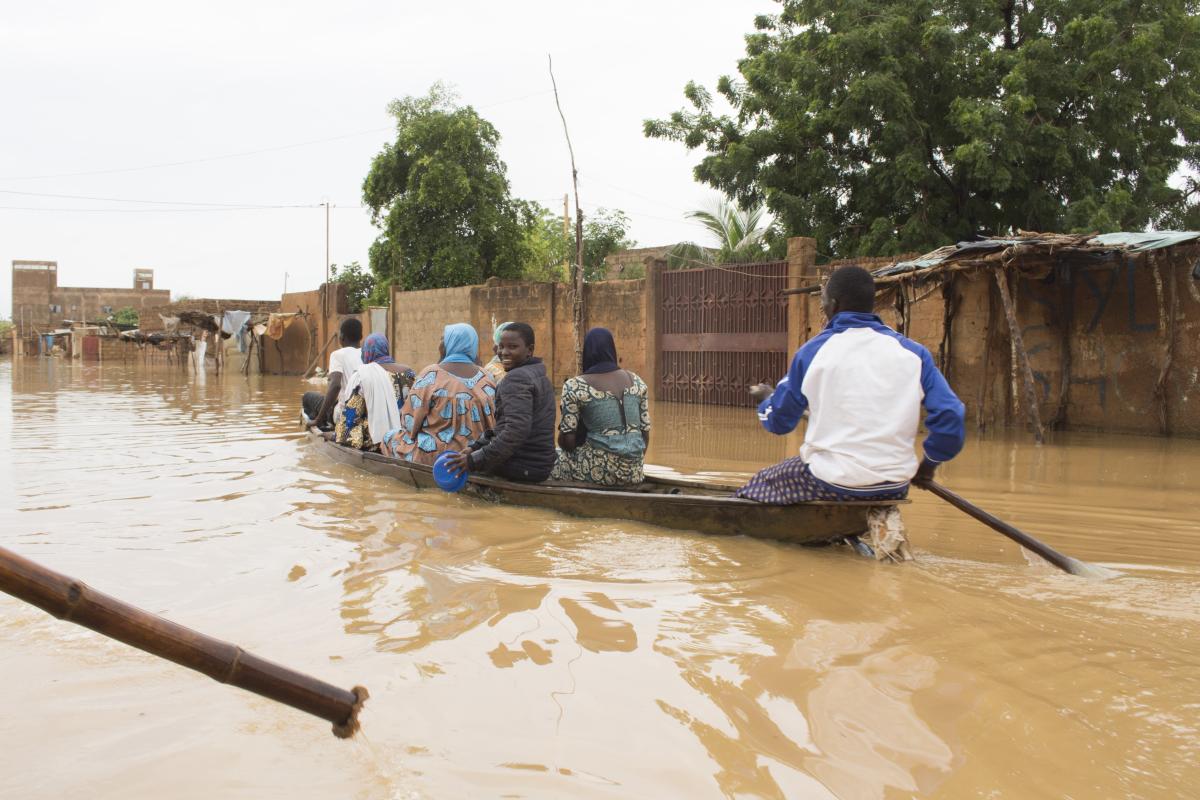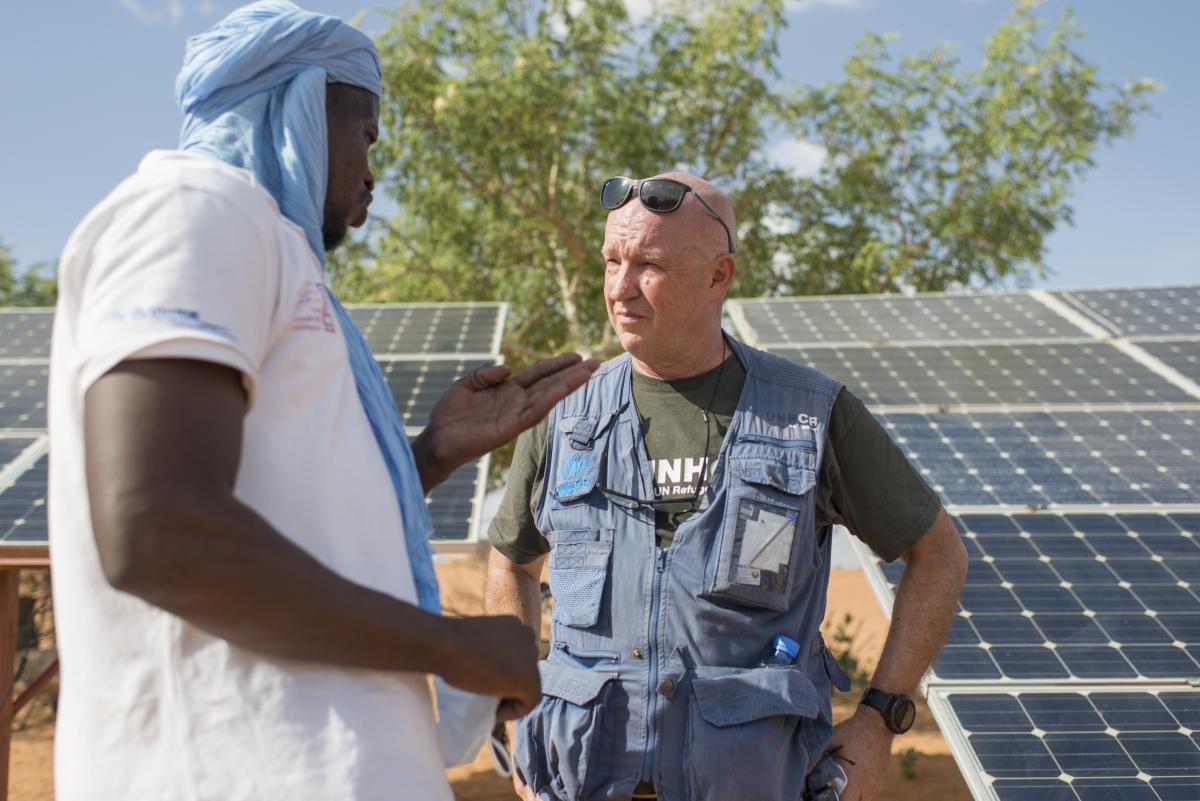COP26, the international climate summit, ended on November 12, with a climate "compromise", which UN Secretary General Antonio Guterres describes as insufficient. Global warming is likely to force more and more people out of their homes due to rising sea levels and the growing recurrence of extreme weather events. The work of UNHCR, the United Nations refugee agency, is already being impacted by climate change.
« The climate crisis is a human crisis. It is here now with consequences for everyone, everywhere. »
Andrew Harper, UNHCR's Special Advisor on Climate Action.
The term "climate refugee" is being increasingly used, although there is currently no precise definition for it, and it is not yet officially recognized in international law. A "climate refugee" is someone who has to leave their home because the deteriorating environmental conditions make it impossible for them to stay. This growing trend comes with another equally alarming problem: the impact of global warming on displaced people.
Nearly 84% of the world's displaced live in areas heavily affected by global warming. The Sahel region, South Sudan, Bangladesh and Afghanistan are just a few examples. For years now, climate change has disproportionately affected parts of the world's population which were already highly vulnerable.

For many displaced people, climate change is only going to make their living conditions worse. It will intensify safety, security and dignity threats, and it will exacerbate poverty and jeopardize sustainable access to food, water and livelihoods. There are already more than 84 million forcibly displaced people in the world, and the effects of climate change are likely to push that number up even more.
We must face the facts: forced displacement and climate change can no longer be viewed as independent phenomena. Climate change is a key variable in forced displacement. The relationship between the two issues requires a different approach. Over the past decades, UNHCR has fundamentally changed the way it works, minimising its activities’ carbon footprint, strengthening the resilience of displaced people, and reinforcing the sustainability of the solutions it implements.
However, the fight against global warming can only be effective if it is collective. UNHCR is therefore calling on governments to acknowledge the environmental crisis and its impact on forced displacement, and to take concrete action to anticipate and counteract the displacements it will further cause. The financial and human cost of this crisis will only get worse the longer we wait.

Andrew Harper, UNHCR's Special Advisor on Climate Action, expressed his disappointment that COP26 had not outlined tangible actions to ensure commitments made were delivered on, and called on world leaders to do more:
« Global leaders must double down on building defenses for those who are hardest hit by the climate crisis. This will require financial, technological, and capacity support to those who are already working on the ground to fortify and protect their communities. »
Learn more about UNHCR's work to mitigate the effects of climate change on displaced populations.